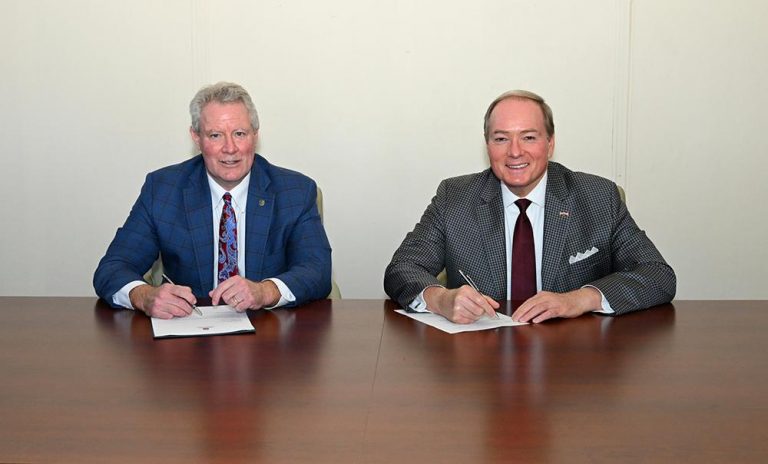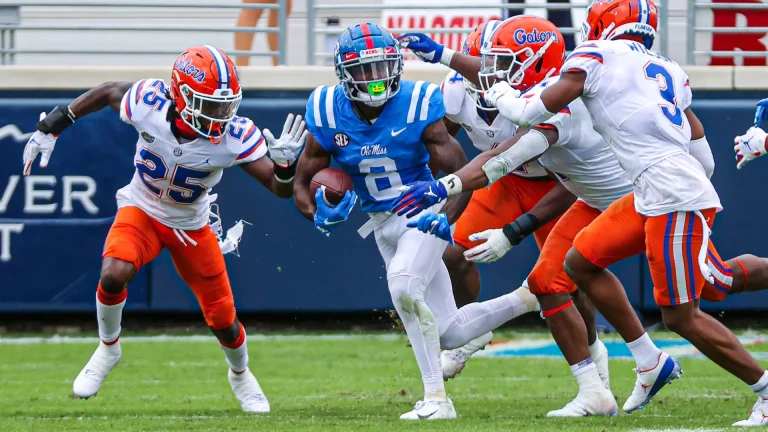
Kathleen Wickham ends teaching career with a historic legacy on campus
As anti-Vietnam protests erupted in the U.S. and teachers threatened a statewide strike, Kathleen Wickham discovered her calling: journalism. The undergraduate at Rowan University became executive editor of the school’s student newspaper.
“I wanted to know the truth,” Wickham said. “There was what my professors were saying, what the newspapers were saying, what the government was saying, and I wanted to know what the truth was.”
Her hunger for the facts has earned her a decorated career as a journalist, researcher, author and educator. On May 31, she retires from the University of Mississippi‘s School of Journalism and New Media after 25 years.
“When I came to the university, we were only a department within the College of Liberal Arts,” she said. “There were fewer than 12 faculty members in the Department of Journalism.
“We have grown much larger, and under our new dean, we are moving ahead with innovative and timely issues, including artificial intelligence.”
Before Wickham began teaching at UM in 1999, her career included working for New Jersey‘s largest newspaper, The Newark Star-Ledger, and teaching journalism at the University of Memphis.
For more than two decades, she has taught her journalism students to prioritize three areas of diversity.
“Diversity in story topics, story sources and staffing,” she explained.
Reflecting on her accomplishments, Wickham is proudest that the Society of Professional Journalists added the Ole Miss campus to its limited number of historic sites in journalism in 2010.
Wickham, who fiercely lobbied for the SPJ designation, has advocated for increased recognition of reporters who covered the civil rights riots sparked by James Meredith‘s enrollment at UM – specifically, Paul Guihard, a French-British journalist who was murdered during those riots.
“Murdering a reporter is like shooting through the First Amendment,” Wickham said. “I’m so passionate about journalism that I was offended when I first came across Guihard’s story around the 40th anniversary of his death.
“It just seemed that his story got maybe a paragraph in a book, and I decided this needs more. So, I started to do research.”
Her published research can be found in books such as the 2017 “We Believed We Were Immortal: Twelve Reporters Who Covered the 1962 Integration Crisis at Ole Miss” and “James Meredith: Breaking the Barrier,” which was published in 2022 ahead of the 60th anniversary of integration.
Both students and colleagues have appreciated Wickham’s high standard of excellence and commitment to fostering an inclusive learning environment.
“She cares a great deal about her students, about their learning about diversity in the curriculum, and she was just a wonderful mentor for me through the tenure process,” said Alysia Steele, an associate professor of multiple platform journalism.
“I think it’s really important when we’re talking about DEI (diversity, equity and inclusion) work, that we actually do the work and Dr. Wickham has been doing it before DEI was ever really this thing that people attacked or even before people were made sure to include DEI. She just did it.”
Outside the classroom, Wickham served as the university’s SPJ chapter adviser for nearly 10 years.
However, seeing all her students succeed has been her favorite part of the job.
“Not everyone will go into journalism, and that’s OK because journalism is still one of the best liberal arts because it teaches so much about the world,” Wickham said. “It teaches you how to write, and it teaches you how to think critically.
“So, even if you don’t become a journalist, we are giving you skills that you can apply in many other jobs.”
National award-winning journalist Tony Plohetski graduated from Ole Miss in 2000. He met Wickham as an undergraduate and went on to become a Pulitzer Prize finalist for his news coverage of the 2022 Uvalde mass shooting.
“I was instantly drawn to her,” he recalled. “She brought a new depth to the roster of journalism professors at Farley Hall and a fresh perspective that I embraced.
“I deeply appreciated her professional, real-world journalism experience that worked in conjunction with her academic experience and could see that her goals were always student-focused.”
Jaylin R. Smith, a journalism graduate student who graduates from UM in May, is already entertaining job offers from reputable news stations.
Wickham, she said, has challenged her and fellow students to uphold unwavering journalistic ethics and think critically with real-world scenarios.
“Not only did she make me look at how we present the news, but also how journalists can impact specific communities they cover,” Smith said.
In 2022, Smith transferred to Ole Miss from Mississippi Valley State University. It was a major adjustment for her, but when Wickham wrote a detailed compliment on one of her first assignments, Smith felt a sense of belonging at the university.
“The note was genuine and helped me overcome my imposter syndrome after transferring,” Smith said. “She led a classroom where respect was the standard but was never afraid to tackle tough issues.
“She came in my life at such a pivotal moment.”
As she packs up her campus office, Wickham is looking forward to making more memories with her grandchildren and enjoying scenic bike rides.
She also plans to complete an ongoing research project involving the Black press.
“She’s been a wonderful source of support for me,” Steele said. “Her absence will be felt.”
Wickham said she’s worked with the best colleagues who have an impressive mixture of academic and practical experience.
“It’s time for the next generation to take us to the next level,” said Wickham. “If we lose journalists, we lose democracy. That’s it. We are the ones to keep government in check. We’re the ones that keep the public informed so they can make educated decisions at the polling booth.
“Without (journalism), there’s no way for people to receive the information that they need to live their lives.”
By Marvis Herring







